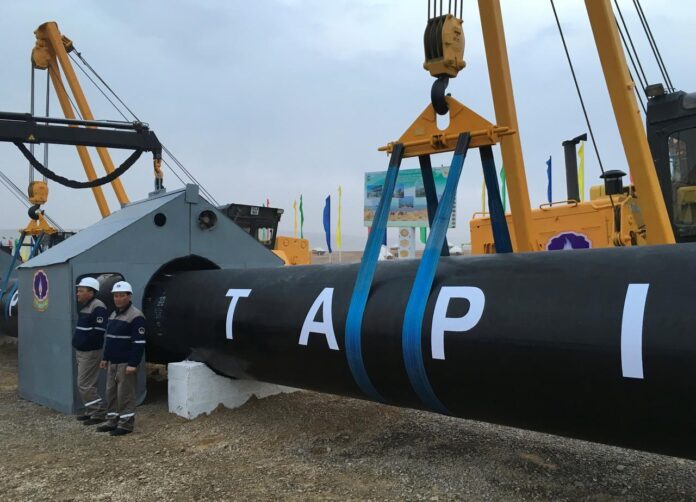Turkmenistan is set to possess an 85 percent stake in the project, while Afghanistan, Pakistan, and India will each hold a 5 percent share
Pakistan has decided to extend the Foreign Investment Promotion and Protection Act (FIPPA) to provide legal protection to Turkmenistan’s investment in the ambitious $10 billion TAPI gas pipeline project. The move aims to enhance the project’s bankability for international lenders.
Turkmenistan will hold an 85 percent stake in the project, with Afghanistan, Pakistan, and India each having a 5 percent share. The FIPPA law, previously enacted to safeguard foreign investment in the Reko Diq copper and gold mine, will now offer assurances to Turkmenistan’s investment in the TAPI project.
The law division, having no objections, is working on aligning existing commitments under the Gas Pipeline Framework Agreement (GPFA) and Host Government Agreement (HGA) with the incentives package under FIPPA.
The evaluation process is set to conclude by December 31, 2023, with the Special Investment Facilitation Council (SIFC) Apex Committee expected to provide final approval.
Despite previous assurances through the HGA, Pakistan sees FIPPA, 2022, as a comprehensive mechanism for providing incentives and guarantees to Turkmenistan’s investment in the gas pipeline project.
The TAPI project, with a 30:70 percent equity and loan business plan, has faced delays over the years, primarily due to financial closures and recent geopolitical changes with the Taliban’s takeover in Afghanistan. The Asian Development Bank (ADB) halted due diligence and processing activities until the Taliban regime is legitimized.
However, progress was marked on June 9, 2023, as Turkmenistan and Pakistan signed a Joint Implementation Plan (JIP) in Islamabad to expedite work on the TAPI Gas Pipeline project. Pakistan proposed laying a portion of the gas line up to Herat in Afghanistan to secure ownership from the Taliban, facilitating the project’s advancement.
The TAPI gas pipeline project, spanning 1,849 kilometers, aims to transport natural gas from Turkmenistan’s Galkynysh gas field to Pakistan through Afghanistan. The proposed route includes Herat, Kandahar, Chaman, Zhob, DG Khan, Multan, and Fazilika, with an annual capacity of up to 33 billion cubic meters over a 30-year period, and Pakistan’s off-take set at 1.35 BCFD.





10 billion dollars for 1 bcfd …. While Total domestic gas production has hovered around 4 billion cubic feet per day (bcfd) while domestic demand is estimated at 6-8 bcfd…. Who got this idea